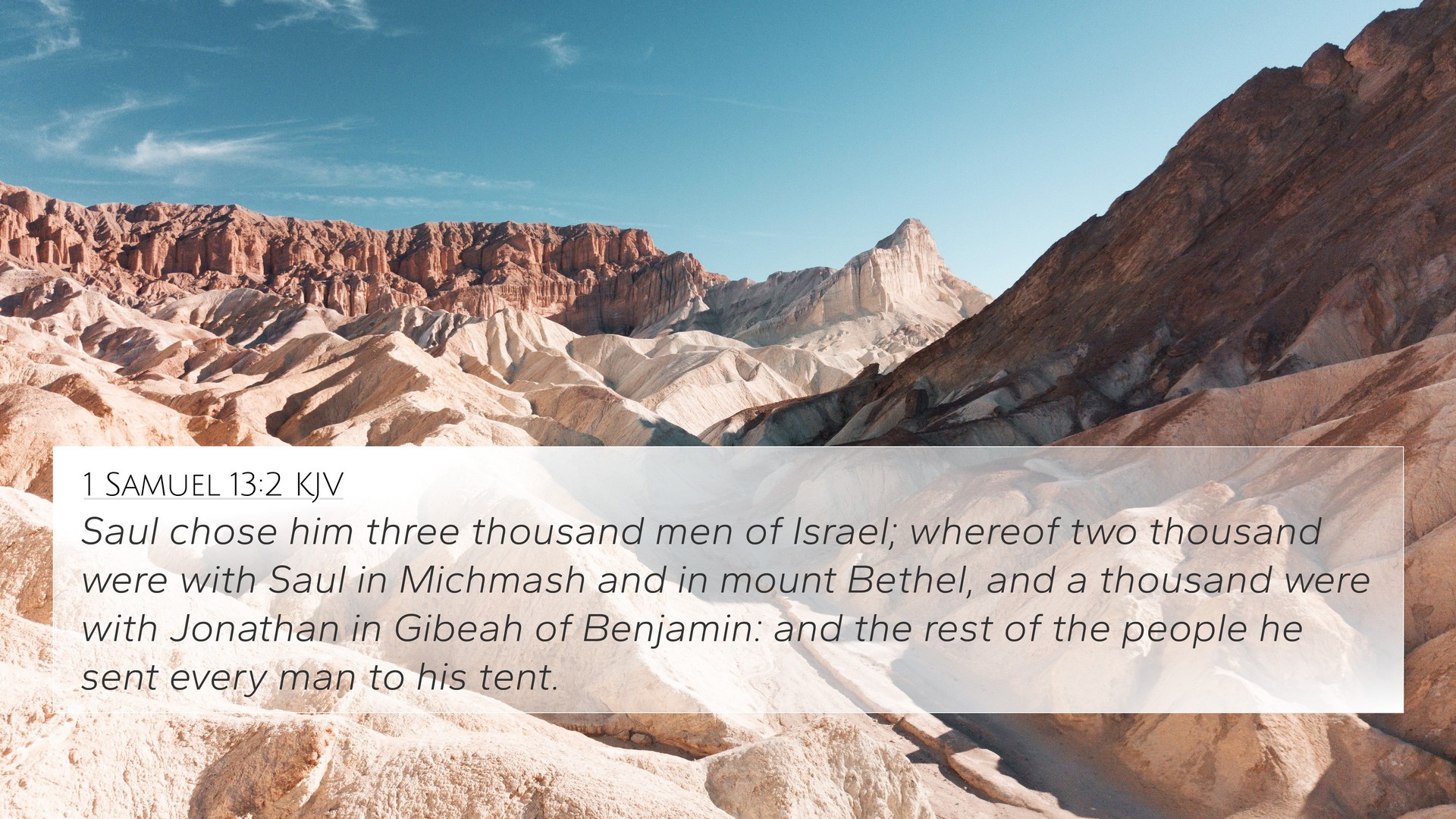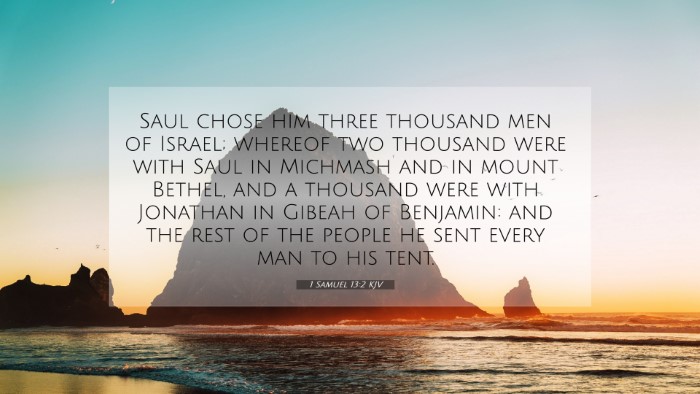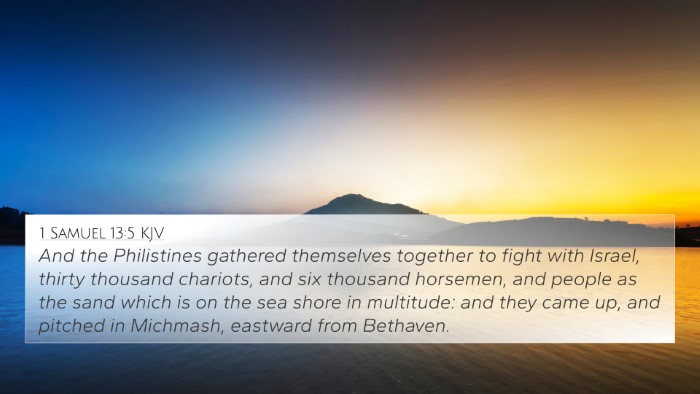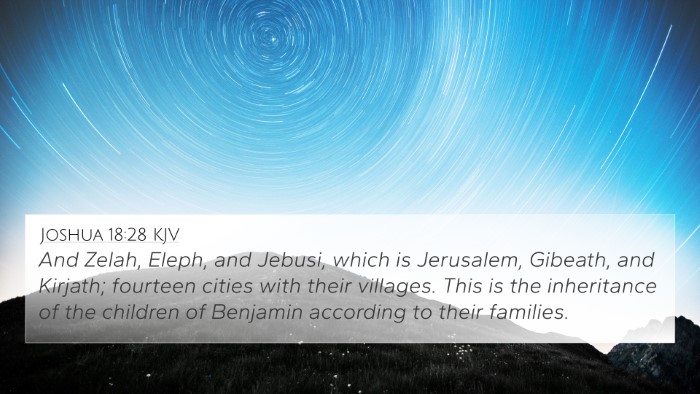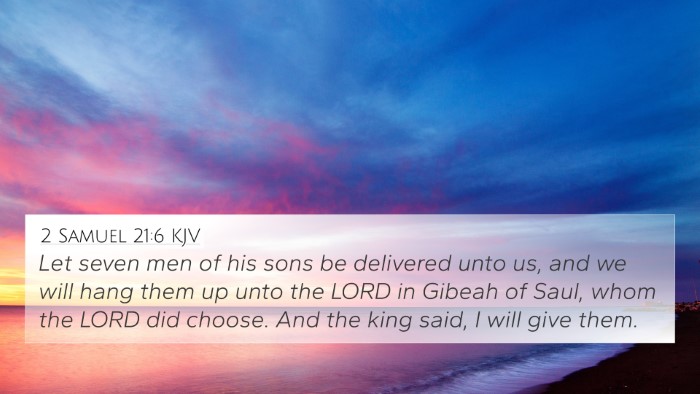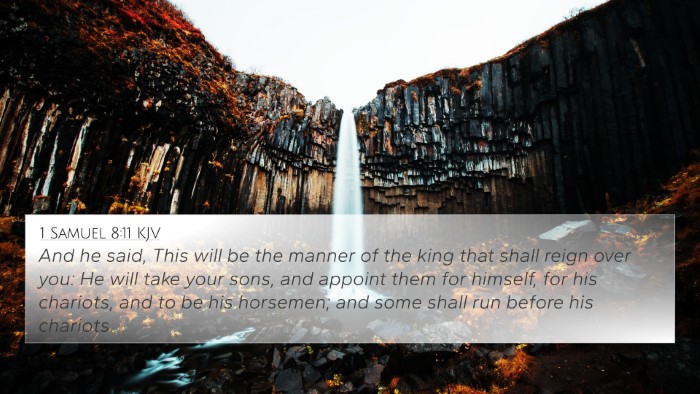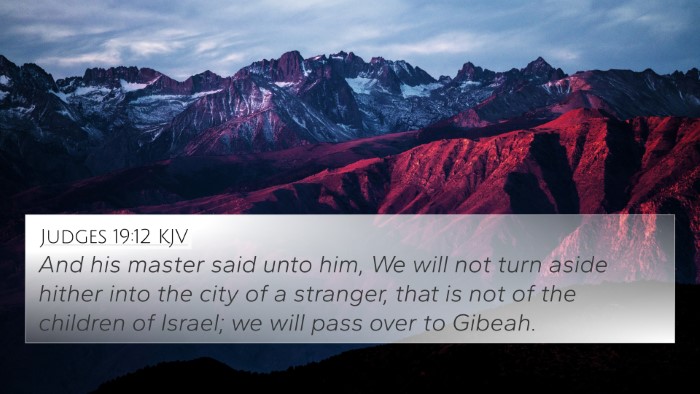Understanding 1 Samuel 13:2
Bible Verse: "Saul chose for himself three thousand men of Israel; two thousand were with Saul in Michmash and in the mountain country of Bethel, and a thousand were with Jonathan in Gibeah of Benjamin. The rest of the people he sent away, every man to his tent." (1 Samuel 13:2)
Meaning and Analysis
This verse presents a significant moment in the narrative of King Saul and sets the stage for further events in the history of Israel. Public domain commentaries provide several insights into its meaning:
Key Insights from Commentaries
- Matthew Henry: Henry notes that Saul's choice of troops reflects his transitional leadership. By selecting three thousand men, he aimed to display strength, but it also highlights the ongoing conflict with the Philistines.
- Albert Barnes: Barnes emphasizes the geographical significance of the locations named—Michmash and Gibeah—indicating key strategic points in the battle against their enemies. He underscores the importance of Jonathan’s presence leading a separate thousand men.
- Adam Clarke: Clarke points out the unity of Israel at this stage and the troubling division that follows. He mentions the sending away of the rest, which can imply a lack of preparedness for the upcoming conflict and the struggles within Saul's leadership.
Cross-References to Enhance Understanding
To gain a deeper understanding of 1 Samuel 13:2, we can identify several Bible verse cross-references:
- 1 Samuel 14:1 - Jonathan's courageous act against the Philistines.
- 1 Samuel 10:8 - Saul's initial instructions before founding the monarchy.
- 1 Samuel 13:5 - The gathering of the Philistines at Michmash.
- 1 Samuel 15:26 - The divine rejection of Saul's kingship.
- Judges 5:15 - Reference to the leaders who rallied in battle.
- 2 Samuel 10:6 - Acknowledgment of Ammon and Syrian conflicts post-Saul's reign.
- Philippians 1:27 - The concept of standing firm in one spirit, resonating with Saul's military leadership.
- Hebrews 11:32 - Mention of Gideon and Barak as examples of faith, linking to Saul's early endeavors.
- 1 Chronicles 8:33 - The lineage and history reflective of Saul’s family dynamics affecting his rule.
- Luke 14:31 - A parallel concept of warfare strategy and preparation.
Comparative Analysis: Leadership and Military Strategy
This passage reveals insights into the leadership structure of Israel and foreshadows the challenges that Saul would face. The division of troops not only illustrates military strategy but also allegorically depicts the fragmentation in Saul's reign, which parallels the unifying campaigns led by leaders such as David and Joshua.
Connections with Other Scripture
Linking Bible scriptures can yield rich insights. Observing how Saul’s leadership differs from that of David (as seen in 1 Samuel 16:11) may be fruitful in understanding the dynamics of Israel’s monarchy.
- 1 Samuel 16:11 - David is chosen as a contrast to Saul’s leadership.
- Psalm 78:70-72 - Reflects on God's choice of David and his shepherding role, contrasting Saul's preparation.
- Acts 13:21-23 - New Testament reflection on Saul's lineage and God’s ultimate choice of David.
Thematic Connections in Scripture
This verse opens a thematic dialogue about the responsibilities and trials of leadership, which resonates through various books of the Bible. Bible verses that relate to each other on themes of power and divine selection highlight the juxtaposition of divine ordination against human skepticism and challenge:
- Proverbs 21:1 - The king's heart is in the hand of the Lord, linking to Saul's story.
- Jeremiah 17:9 - The heart's deceitful nature, reflecting Saul’s struggles with trust and obedience.
- Matthew 20:25-28 - Jesus' teaching on servant leadership which stands in contrast to Saul's reign.
Tools for Bible Cross-Referencing
Utilizing a Bible concordance can help in exploring such related themes. Bible cross-reference guides allow readers to navigate complex connections effortlessly, thus deepening scriptural understanding.
Conclusion
1 Samuel 13:2 presents a foundational understanding of Saul's early reign, highlighting themes of leadership, military strategy, and divine commentary. The connections and cross-references serve as tools for deeper scriptural engagement, making clear the layered meanings and implications behind Saul's choices.
Emphasizing themes of unity, division, and power dynamics illustrates the narrative's relevance not only within Israel’s history but within the broader context of Biblical teachings on leadership and faithfulness to divine calling.
